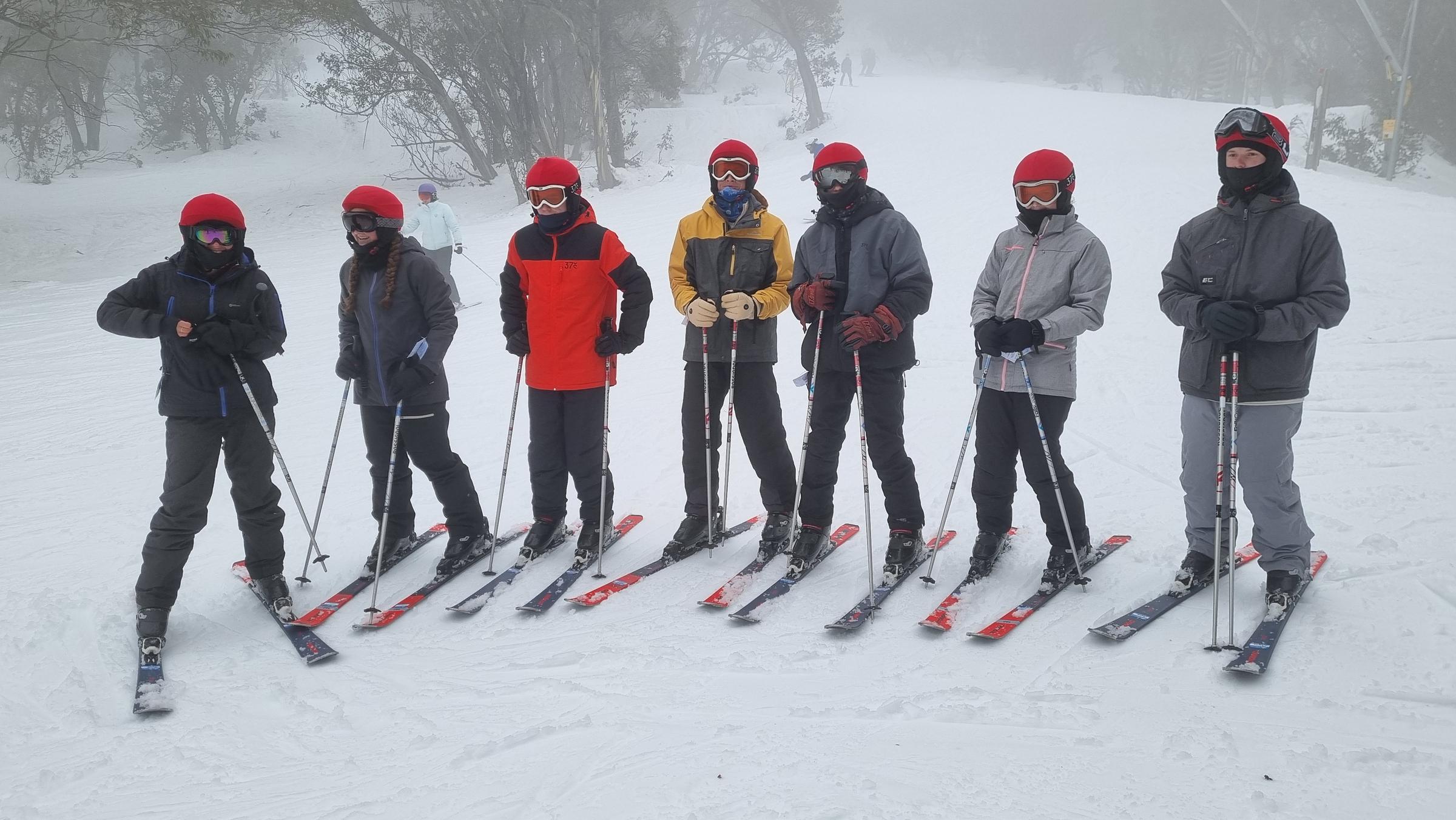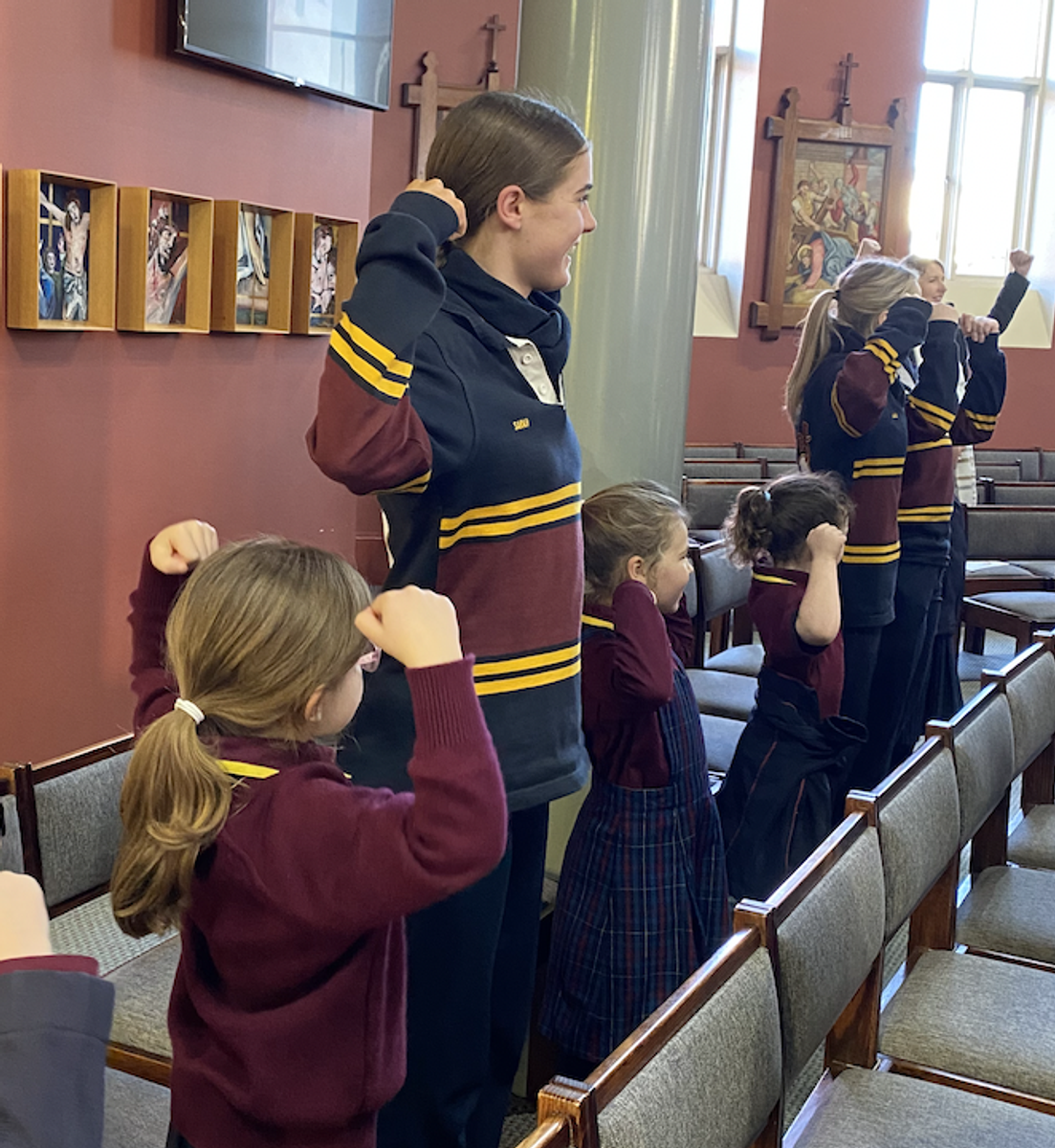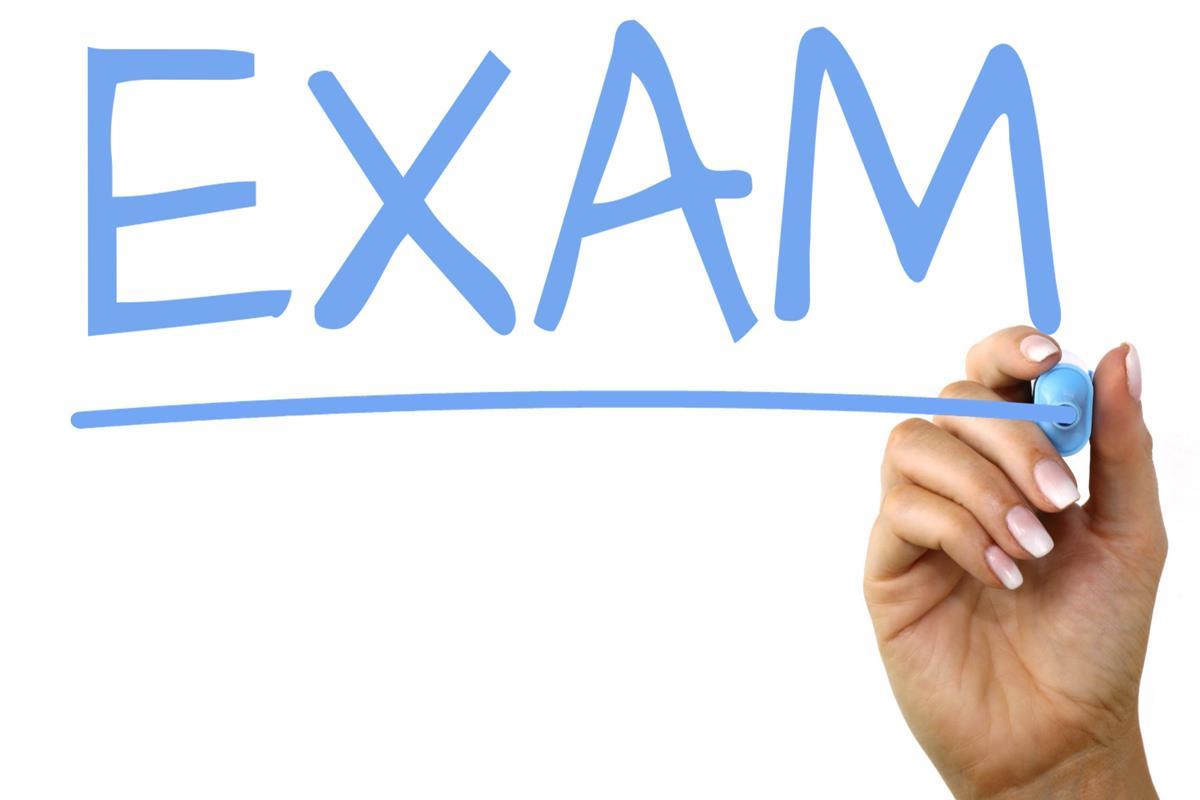9-12 Community News

Welcome to the start of Term 3.
Students and staff in the 9-12 Community have returned with a positive attitude and enthusiasm as we commence Term 3. There is a lot to look forward to in Term 3, from academic challenges to exciting opportunities in the sporting and cultural spheres of St Augustine’s school life.
In the coming weeks we have the House Athletics, interschool sports and the College Production of ‘Frozen JR’, with a number of students from the 9-12 Community in lead roles.
Reflecting back on the end of Term 2, the students of 10A gained an insight into the world of employment as they enjoyed a week of work experience. Students participated in a week of Work Experience in a field of interest to them. Prior to participating in their placement, students were required to contact and liaise with a business to complete appropriate paperwork and work through OH&S discussions and testing. Fourteen students worked across a variety of industries including:
- Education & Child Care (Tongala and Colbinabbin Primary Schools and Toolamba Kindergarten)
- Manufacturing (Cantech Engineering & Kyabram Steel)
- Construction & Design (Brandrick Architects, Chapman Carpet Laying and Daryl Harris Plumbing)
- Automotive (Albion Motors - Toyota)
- Service (Kyabram Hospital, Faded Culture Barbers and Trac Ioriannis Hair & Beauty)
The end of Term 2 also saw the culmination of two major projects for the VCEVM class. As part of their Literacy class, the VCEVM classes worked with the Campaspe and Cohuna Local Learning and Education Network (CCLEN) and the Kyabram Vivid program in the Youth Take Over project. The VCEVM students worked with the clients of Kyabram Vivid to build the public profile of the Vivid organisation through the creation of promotional material, showcasing the program through appearances on EMFM radio and meeting and working with the Vivid clients over the 10 weeks of Term 2. The program culminated in a gathering in the College Auditorium in front of representatives from CCLEN, Vivid, the Campaspe Shire Mayor and the College, where the CCLEN Project Leader, Debbie Robertson, and Vivid Kyabram Chief Executive, Scott Alexander, thanked the VCEVM students for all of their work.
The first week of Term 3 saw our Year 12s enjoy another of their final year experiences as they were able to share their final Year 12 & Foundation Parish Mass. There was a lot of laughter and smiles as the Year 12s joined in singing and dancing with the Foundation class.
As our Year 12 students begin the last Semester of their Secondary School years, they have taken the opportunity to visit a Tertiary Information Service (T.I.S) session, where they were able to explore the range of career, tertiary and post-school pathway and employment opportunities that are available to them as they look beyond the end of their secondary education.
For those who are considering tertiary study, the recent Tertiary Information Service excursion provided insights into the many tertiary institutions and pathways available to students. We encourage all senior students to investigate the many tertiary institutions and career pathways that are available. Across Victoria, metropolitan and regional universities will be opening their doors for prospective students to visit on campus, as well as continuing their online presentations which have been developed over the last three years. Through the next few months, many universities will be holding Open Days. The link below provides the dates and times for a range of Open Days at the different institutions across Victoria.
With the end of year beginning to come into view for our Year 12s (and Year 11s completing a Unit 3/4 subject), we would like to present the information below to students and their families. This article presents a helpful guide for parents and caregivers in the lead up to the Unit 4 SACs and for Examination preparation and revision. Exams, assessment tasks and assignments can be testing times for all students and parents alike. This article contains valuable information and helpful strategies designed to assist young people during these stressful times.
Information in this article is directly connected to the work we do with students through The Resilience Project, Success Integrated and Elevate.
We look forward to working in partnership with you, again, this semester and look forward to seeing you on-site for TA meetings and Subject Teacher Conversations later in the term. As always, please feel free to contact your child/ren’s TA should you have any queries or concerns.
Testing Times: How to deal with exam anxiety
Source: https://theparentswebsite.com.au/testing-times-how-to-deal-with-exam-anxiety/
Tests, exams, assessments – the mere mention of these to some teens can cause anxiety to escalate, writes Dr Deborah Trengove. She shares her strategies to help overcome the feeling during testing times.
From class spelling tests to Year 12 SACs, and everything in between, tests are part of school life. In an extended format, they are known as exams: timed assessments of learning and skills.
Over the years I have worked with many young people who have found tests and exams to be anxiety-producing experiences. Some have described going blank, forgetting all their hard-earned knowledge. Others get the shakes, their heart races or they become overwhelmed by the fear of bad grades. Some become too afraid to have a go, and others race through making simple mistakes.
These are all normal responses to a perceived threat, albeit a psychological one. Test anxiety can inhibit a student representing all they have learned, causing frustration and disappointment that they have not performed as well as they wanted to, creating worry for the next test or exam.
The anxiety response
It helps to understand the mechanism which is creating this anxiety response. It emanates from the amygdala, the alarm centre of our brains. The amygdala sets off a flight, fight or freeze reaction, depending on the situation, personality, beliefs and previous experiences or memories. The racing heart, going blank or sweaty palms are all normal bodily reactions activated in response to a threat. However, when in a test or exam, the threat is on a piece of paper and students cannot flee out of the room, freezing doesn’t help, and starting a fight is not an option! In this heightened state, the frontal lobe cannot perform its problem-solving functions, so questions are mis-read, answers forgotten, and mistakes made, increasing the cycle of stress and panic.
The fear
When probed about the perceived threat in a test, many young people describe their fear of not doing well, of making mistakes, or of disappointing their parents and teachers. As they get older, this fear is exacerbated by the consequences of poor performance. I have often heard senior students explain that if they do badly on an exam, they could get a bad ATAR score. If they get a bad ATAR score, they won’t get into a good university. Then they won’t get a good job and their entire life will be on the scrap heap. No wonder they feel anxious – it feels like their whole future happiness and success is riding on every test!
Helpful strategies
There are many strategies that can help reduce test anxiety, at almost any age. I encourage parents to support their children and teenagers in building up their repertoire of test-taking skills, exploring which are most effective for each individual.
A healthy mindset
Many parents foster a ‘do your best’ approach to tests, which is a good basis to reduce excessive pressure. Others focus more on effort – and reassure their children that they are proud of them if they have tried their best, no matter the result. These mindsets help a young person to establish an internal goal, which promotes resilience under pressure. There may always be unexpected or tricky questions on a test or exam, but they have not let anyone down if they have applied themselves and tried their best.
Seeing tests as part of ongoing learning is also very powerful. The assessment – feedback – learning cycle underpins growth in skills and knowledge. If young people can see the bigger picture, it reduces a lot of anxiety about short-term performance. Learning will go on for many years, hopefully lifelong, with the satisfaction of improvement and mastery. It is important to teach young people that mistakes are part of learning, and learning is impossible without mistakes.
Breathe, breathe, breathe
If your heart is racing, the best way to slow it down is through moderating breathing. An easy technique is known as Box Breathing: breathe in, to the count of four, hold for the count of four, breathe out to the count of four, hold for the count of four. The four-count may be adapted to three, depending on what works best for the individual. Simply slowing down breathing works for some students, perhaps counting in to seven and out to 11.
A mindful approach
Mindfulness promotes focusing on what is happening in the present time, not getting caught up worrying about the future or ruminating about the past. I have found this approach to be very beneficial for many students – it encourages them to take one question at a time, to fully engage in the task and not to become overwhelmed by ideas such as ‘what if I make a mistake’. It helps to accept that the result cannot be controlled at the time of the test. What they can try to control is where their mind is… on the content of each question. If worrying thoughts arise, young people can learn to notice them without dwelling on them and return their attention to the task at hand. Doing regular mindfulness practice can support this approach – apps such as Smiling Mind, Buddhify, Insight Timer and others are readily available.
Practical strategies
More formal study skills should be developed over time. Teachers are a fabulous resource and will often have the best advice for their students. A few basic strategies include:
• Be prepared and know what is involved in the test or exam
• Practice similar questions, to time, if appropriate to the age and subject
• Progressively develop test-taking techniques such as:
– Effective time allocation
– Overview of test sections
– Identifying key words
– Starting on a question in which they feel confident
A useful site with research-based tips and techniques can be found at www.learningscientists.org.
About the author: Dr Deborah Trengove is a former school psychologist and school wellbeing leader.
Deborah’s previous articles for The Parents Website include 10 tips to help your teen out of the procrastination trap, How parents can help kids make good friends and Lessons from lockdown: The good things we’ve discovered
Michelle Downie Brad Downie
9-12 Community Leader 9-12 Community Leader
Wellbeing and Community Student Learning and Professional Practice
VCEVM
In May, the VCEVM students worked with Headspace Echuca to create podcasts on Anxiety and Depression. The students worked hard researching, drafting and rehearsing their podcast questions, and spent the entire day on 15 May learning, perfecting and recording their final podcasts. In July, we were given our live, good copy Podcasts, and students entered the competition to see if they could gain the most views, and win St Augustine’s the grand prize of $2500 worth of podcasting equipment. We will find out soon if we were victorious, as the competition ends at 11:59 pm on 26 July!
Whilst the challenge is exciting, the prospect of creating resources that young people can utilise in the future and having something that will outlive the students past their school journey is the most exciting prospect of all. The students were mature, honest, and unfiltered when recording their podcasts. They shared their feelings, personal opinions and asked industry professionals the hard-hitting questions about Anxiety and Depression in young people. They created something to support other young people who may be struggling.
Here is what a few students had to say about their experience:
Kaitlyn:
Why do you think these podcasts are so impactful for young people?
I believe that when a younger person or someone around the same age hears someone talking about problems we teenagers are having, they will actually listen because they know we understand more than adults do.
Oliver H:
What are you most proud of about this entire process?
I am most proud about getting out of my comfort zone and giving it a go.
Abby A:
What was it like creating a podcast on a topic like Depression?
It was really good. I learned a lot about depression, what it involves, how people go through it and who helps and guides you when you are having trouble.
Isaiah:
What was it like talking to an industry professional about such a serious issue?
It was good to hear from someone who's such a professional in that area and could help so many people by listening to it and being able to spread the word about it. It was also good to have the opportunity to make a podcast about such a strong topic.
To listen to the student’s podcasts, you can view their flipbook; watch their videos and see photos of them in the stages before recording. You can also access their Soundcloud links through the flipbook.
Flipbook: https://online.flipbuilder.com/xjke/khsd/
Whilst these podcasts are insightful and honest, they do talk about issues that can create some distress.
If you or a young person you know would like more information on these topics, or other topics of interest, head to the Headspace website: https://headspace.org.au/explore-topics/for-young-people/mental-ill-health/
If these podcasts bring up any feelings or concerns, please feel free to reach out to Headspace. You can complete an online self-referral here: https://form.jotform.com/Echuca/headspace--self-referral-form?fbclid=IwAR2Q7BZLVlKVWsexmimN5VSOSwctTvqdQjZpeUvPoCbEFh7y2van9FMVfwk or call Headspace Echuca on (03) 5485 5048
Also, remember you can reach out to the St Augustine’s Wellbeing Team.
The VCEVM cohort would like to wholeheartedly thank our partners, Headspace Echuca and Making Media, who without their contribution, Kyabram Live, and the podcast challenge would not be possible.
Mrs Bianca Moore, Mr Peter Fawcett and the 11/12 VCEVM Cohort.




